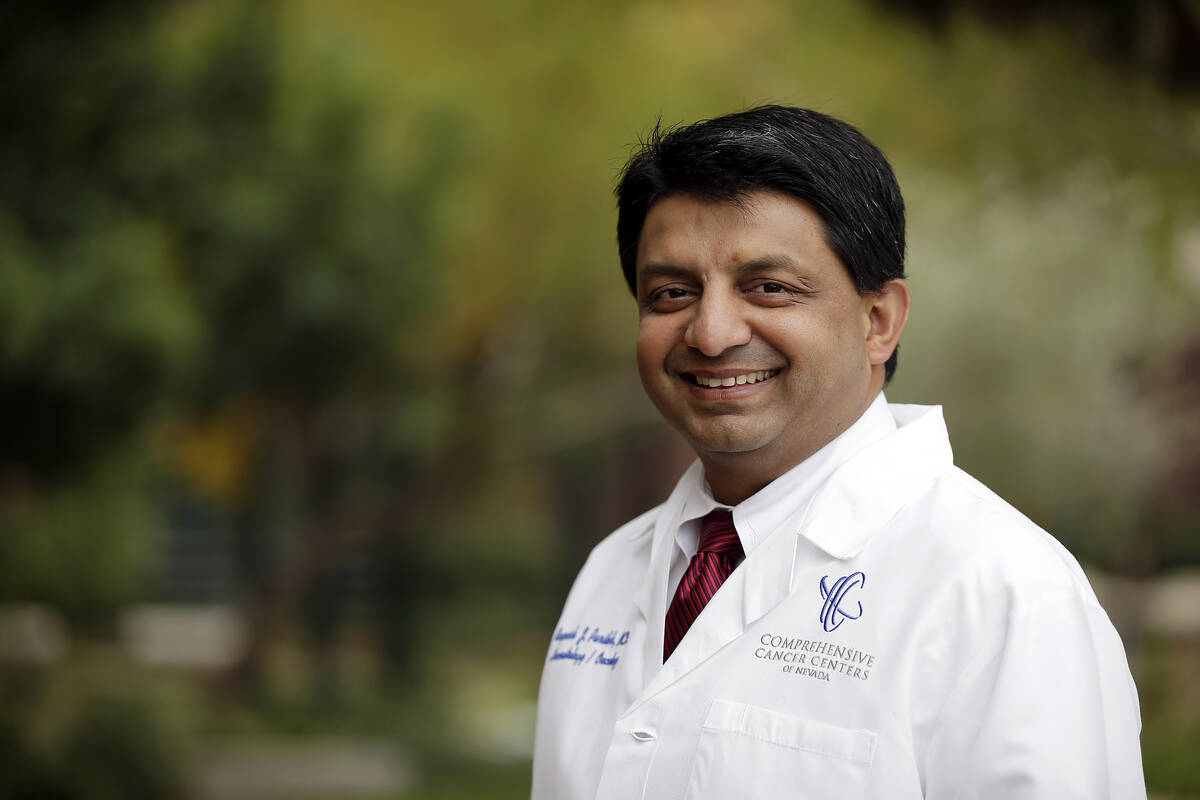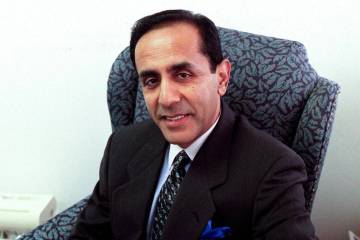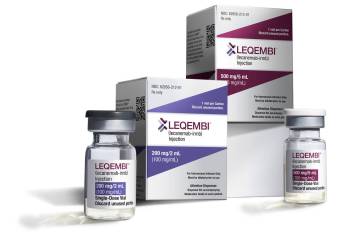Doctors: Don’t put off annual mammogram
Last year, women were encouraged to get their mammograms, even in the midst of the COVID-19 pandemic. While many listened and got this important annual screening, many others chose not to for a variety of reasons.
Now, says Rupesh Parikh, M.D., practice president for Comprehensive Cancer Centers and chief of staff for Dignity Health-St. Rose Dominican’s Siena and Rose de Lima campuses, is the time to take back our lives and our health as most screening facilities are open once again.
“I’ve heard from many women who wished they would’ve heeded the suggestion and gotten their mammograms during the pandemic,” Parikh said. “Breast cancer doesn’t wait just because another health issue is getting more press. … It continues to march on.”
While Parikh laments the unfortunate situations some patients are facing — stage 3 and even stage 4 cancers because of the postponement of important health tests or treatment protocols — he also shares that, today, many younger women are getting cancer, making the timeliness of these tests even more crucial.
“If you feel something suspicious when you’re doing your monthly breast self-exam, get it looked at as soon as possible,” he said. “Often, younger women just chalk their worries up to their busy lifestyle, and — because they don’t meet the ‘qualified’ mammogram age of 40 — opt not to look into these seemingly abnormal occurrences further.
“With today’s cases often being caused by risk factors other than just those that are age-related, it’s never too early to be safe. Our job is to help prevent late detection of cancer and to let people know that if you do find the disease sooner than later, there are more ways to treat cancer if we can catch it early. As I keep saying, I much rather prevent the disease than treat the disease.”
Attendance at regular mammography screening substantially reduces the risk of dying from breast cancer, according to a large study of over half a million women, funded by the American Cancer Society and published in the journal Radiology. Researchers said women who skip even one scheduled mammography screening before a breast cancer diagnosis face a significantly higher risk of dying from the cancer.
“This is the first time we’ve analyzed the mortality benefit of not just breast cancer screening but regular breast cancer screening using such a robust, comprehensive data set,” said Robert Smith, Ph.D., senior vice president of cancer screening for the American Cancer Society.
He added, “This study comes at a critical time, as a staggering number of women have missed their regular mammogram over the past 12 months due to the period when screening services were suspended as a result of the pandemic, as well as enduring fears and barriers caused by the COVID-19 pandemic.”
Another study published in the Journal of Cancer in March 2020 was led by László Tabár, M.D., in Falun, Sweden, where a multinational team of researchers took a more detailed look at screening attendance patterns to further refine mortality risk estimates. They analyzed data from almost 550,000 women eligible for mammography screening in nine Swedish counties between 1992 and 2016.
The women were divided into groups based on their participation in the two most recent scheduled screening exams before cancer diagnosis. Women who participated in both screening sessions before diagnosis were identified as serial participants, while those who did not attend either screening opportunity were categorized as serial nonparticipants.
As the world’s largest service screening study, this research showed that women who participated in mammography screening had a statistically significant 41 percent reduction in risk of death from breast cancer within 10 years of diagnosis and a 25 percent reduction in the rate of advanced breast cancers.
Furthermore, the analysis showed that participation in the two most recent mammography screening appointments before a breast cancer diagnosis provides a higher protection against breast cancer death than participation in neither or only one examination.
“Regular participation in all scheduled screenings confers the greatest reduction in your risk of dying from breast cancer,” said the study’s lead author, Stephen W. Duffy, professor of cancer screening at Queen Mary University of London. He said that the results add more evidence to support regular screening with mammography as a means for reducing breast cancer-related deaths.
“While we suspected that regular participation would confer a reduction greater than that with irregular participation, I think it is fair to say that we were slightly surprised by the size of the effect. The message that women should take from this analysis is clear: Regular screening tests can save your life,” Smith said.
In the United States during 2021, there will be an estimated 281,550 new cases of invasive breast cancer diagnosed in women and 43,600 deaths, higher rates than usual because of the screening slowdown during the pandemic.
By analyzing secondary data from 32 community health centers participating in a grant program funded in partnership with the NFL to bolster breast cancer services, American Cancer Society researchers estimated that 63 percent of women should have been screened in 2020 if historical trends from the previous years continued. But less than 50 percent were imaged for breast cancer last year, or roughly 47,517 fewer mammograms and 242 missed diagnoses.
Declines were consistent across centers, though magnitudes were greater at those serving higher proportions of Black patients.
“This study is important because these populations have long-standing barriers to accessing care, lower breast screening rates, higher breast cancer mortality rates, and are especially vulnerable to health care disruptions,” says Stacey Fedewa, Ph.D., the American Cancer Society’s senior principal scientist.
So what should women do? As Dr. Parikh said, “Awareness is key. The facilities are carefully following all COVID-19 protocols, so schedule your screening today. Time is of the essence.”




























